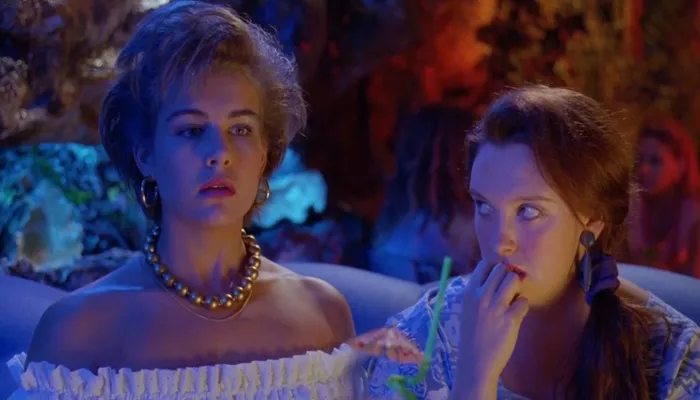When writer-director PJ Hogan crafted Muriel’s Wedding in 1994, he likely knew he had struck gold with a feel-good classic. However, what he may not have realized at the time was that he had unknowingly played a pivotal role in the rise of Abbamania, helping transition the Swedish pop band from a cultural afterthought to a global phenomenon. In hindsight, Hogan might just deserve a cut of the proceeds from the Mamma Mia! musicals and the Abba Voyage live show.
Muriel’s Wedding also introduced the world to Toni Collette, who would go on to become one of the most versatile and outstanding actors of her generation. In this film, she made a memorable entrance, showing the world just what she was capable of.
At the time of its release, it was still considered somewhat unusual for a “loser”—albeit a sympathetic one—to be depicted as a fan of Abba. However, what the film gets right, and what many jukebox musicals that followed failed to grasp, is that Muriel’s Wedding doesn’t become obsessed with the band. The film’s soundtrack may feature Abba’s greatest hits, but it’s not saturated with their music. When Muriel’s life takes a turn for the better, she declares, “I haven’t listened to one Abba song. That’s because now my life’s as good as an Abba song.”
The story revolves around Muriel, a lonely teenager living in the small town of Porpoise Spit. Bullied by a clique of mean girls and with a family that offers little support, Muriel’s only solace is her obsession with Abba and the dream of having a perfect wedding. Her father, Bill Heslop (played by Bill Hunter), is a failed politician and corrupt property dealer, whose actions have left Muriel’s mother, Betty (Jeanie Drynan), in a state of deep depression.
Muriel eventually escapes her troubled life by moving to Sydney, where she reinvents herself and begins living with her rebellious best friend Rhonda (Rachel Griffiths). But it’s Muriel’s quest for her dream wedding that leads her to a life-altering crisis—a crisis that also affects Rhonda in unexpected ways.
One of the film’s defining moments comes when Muriel and Rhonda, dressed in hilarious Anni-Frid and Agnetha-inspired outfits, win a karaoke competition with their spirited rendition of “Waterloo.” While today the scene may seem predictable, at the time, it was a jubilant and life-affirming celebration of female empowerment, far from the satirical lens that would later define the Abba movie-musicals. This moment set the stage for the later wave of Abba-themed movie musicals, framing the band as a symbol of friendship and joy for women, long before the Mamma Mia! franchise took hold.
Yet Muriel’s Wedding is not just about fun and music. The film takes risks, daring to depict real-life heartbreak alongside its comedic elements. It also features a positive, non-solemn portrayal of a wheelchair user—an inclusive touch that was ahead of its time.
In hindsight, Muriel’s Wedding stands as a timeless film that captured a moment in Abba’s resurgence, while introducing Toni Collette as an actor capable of leaving a lasting impression in everything she touches.
Related topics:
Finn Wolfhard’s ‘Hell of a Summer’ Slasher Set for April 4 Release
“Killgrin”: A Supernatural Horror of Grief and Terror
“Mouseboat Massacre” Reimagines Childhood Icon in Horror Twist

